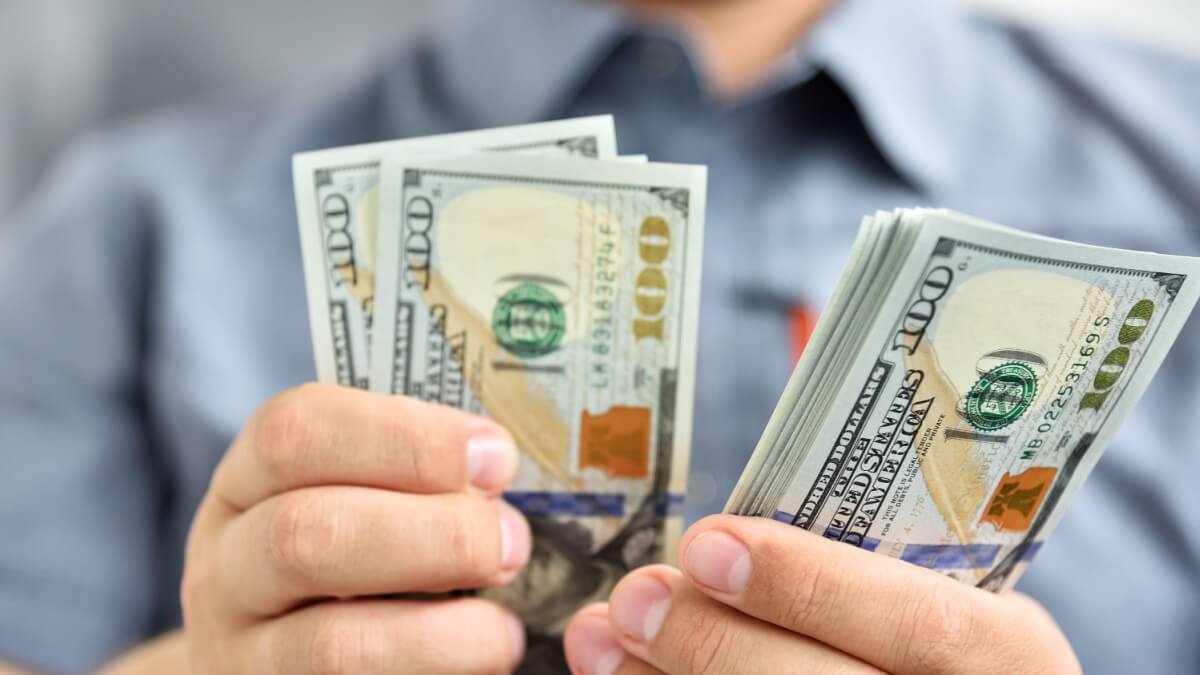Paysera alternatives: Which is the best for you?
Looking for a Paysera alternative? Compare the top 5 options in 2025 and find the best app for international payments, spending, and saving.

Need to pay bills, send money to your loved ones, or buy something? A money order is a reliable way to send funds in the US and abroad. It's a secure form of payment that doesn't require a bank account, making it easily accessible for many people.
But where can you buy a money order? This guide explains what a money order is exactly and where to get one near you.
| Sending money abroad? Check out Wise for low cost and speedy international transfers with no hidden fees. |
|---|
A money order is a prepaid piece of paper that works like a check. Unlike a personal check, you pay for a money order upfront, so it's guaranteed to clear when cashed.
To get a money order, you pay the amount you want to send plus a small fee. Your recipient can then cash or deposit the money order, just like a check.
Money orders are useful for sending money securely when you don't want to use cash or a personal check.
If you're wondering "where can I get a money order near me," the good news is that there are several options. Post offices, convenience stores, banks, and credit unions are all great places to purchase money orders, as well as your local Walmart.
The US Postal Service® (USPS) issues money orders that are accepted almost everywhere. You can cash them at many locations, including banks and other post offices.
The process to get a USPS money order is straightforward. Visit your local post office, fill out the money order form, and pay the amount plus a fee.
The money order fee depends on the amount of your order.
| How Much You’re Sending | USPS® Fees¹ |
|---|---|
| 0.01 to 500 USD | 2.35 USD |
| 500.01 to 1,000 USD | 3.40 USD |
| Postal Military Money Orders (issued by military facilities) | 0.79 USD |
If you’d like to use the USPS money order tracking feature, make sure to keep your money order receipt.
You can send up to 1,000 USD in a single post office money order anywhere in the US.¹
For international money orders, you can send up to 700 USD (500 USD for El Salvador and Guyana). You will also need to pay an issuing fee of 49.65 USD and a processing fee based on the country you're sending money to.²
Many banks and credit unions offer money orders to those who have an account with them as well as to those who don’t. That said, your financial institution may give you a better rate as an account holder.
To get a money order from a bank or credit union, visit your local branch, fill out the form, and pay the amount plus the fee.
The fees at banks might be slightly higher than at the post office, so this might not be the best route if you're looking for the cheapest money order.
A Walmart money order is an easily accessible option as many locations are open late and on weekends.
Walmart partners with MoneyGram, Ria, and Western Union to issue money orders.³ The process is simple:
- Head to a Walmart MoneyCenter or customer service desk
- Tell them the amount you want to send
- Fill out the money order form
- Pay the fee
Money order fees vary by location, but Walmart claims they won't be over 1 USD.⁴
You can use cash or your debit card to purchase a Walmart money order. It’s also possible to send multiple money orders.
Many convenience stores and grocery stores sell money orders, typically through Western Union or MoneyGram.
Convenience stores are often open late. This makes them a good option if you need to send a money order outside of regular business hours.
The fees can vary, so check with your specific store for the most accurate information.
Keep in mind that convenience stores may not offer the same level of security as a bank or the USPS. A lost or stolen money order can be replaced, but it takes time and additional processing fees.
You can purchase a Western Union money order at many locations, from supermarkets to check-cashing stores. You can also go to an official Western Union branch.
The process is similar to other options: fill out the form, pay the amount and fee, and you're set.
Western Union fees depend on where you're sending your money to and how you're paying for it. You can use the price estimator on Western Union's website to get an idea of what it'll cost you.
| Sending money abroad? Western Union also makes money from currency exchange.⁵ See how Wise compares and make a fast, cheap and secure international transfer. |
|---|
A smart option if you’re sending money overseas: meet Wise.
Register a Wise account online or in the Wise app on iOS and Android, and send money to 70+ countries, with the mid-market exchange rate and low, transparent fees.
Wise always shows you the amount you’re paying and how much your recipient will get — and you can even compare against other providers on the Wise app or desktop site.
If another service is cheaper for your particular payment, you’ll be shown — so you can’t lose.
| See how Wise compares with international bank transfers in our full guide |
|---|
Please see Terms of Use for your region or visit Wise Fees & Pricing for the most up to date pricing and fee information
Your money order cost depends on where you purchase it.
USPS money orders cost 2.35 USD if you're sending between 0.01 USD to 500 USD and 3.40 USD for money orders between 500.01 USD to 1,000 USD.¹ Banks and credit unions might charge slightly more, but you may get a discount as an account holder.
Walmart promises to always keep their fees under 1 USD.⁴ Fees at convenience stores and Western Union vary and can range anywhere from 1 USD to 10+ USD.
USPS has a safe and straightforward process for ordering money orders, but you can also easily purchase a money order at your local Walmart or Western Union branch. Many convenience and grocery stores also issue money orders.
You can cash a money order at a bank, credit union, USPS office, or a store like Walmart. Western Union and MoneyGram can also help you cash your money order. You must bring a valid ID.
Remember that some places may charge a fee for cashing money orders, especially if you don't have an account with them.
A cashier's check is not the same as a money order.
Banks issue cashier's checks, drawing them from their own funds instead of your checking account. People typically use cashier's checks for larger transactions, such as down payments on a house or car.
Money orders are prepaid and used for smaller amounts. You can get a money order at a USPS office, Western Union, bank, or convenience store.
Yes, there is typically a limit on money orders. For example, you can only send up to 1,000 USD within the US and 700 USD internationally (500 USD for El Salvador and Guyana) with a USPS money order.²
If you need to send more money than this limit, you would need to purchase multiple money orders.
If you need to get a money order, go to your local USPS office, bank or credit union, Walmart, convenience store, or Western Union, and you're all set.
Sending money overseas? Use Wise to send money with high limits, low fees, and the mid-market rate.*
Sources:
Sources checked 07.19.2024
*Please see terms of use and product availability for your region or visit Wise fees and pricing for the most up to date pricing and fee information.
This publication is provided for general information purposes and does not constitute legal, tax or other professional advice from Wise Payments Limited or its subsidiaries and its affiliates, and it is not intended as a substitute for obtaining advice from a financial advisor or any other professional.
We make no representations, warranties or guarantees, whether expressed or implied, that the content in the publication is accurate, complete or up to date.

Looking for a Paysera alternative? Compare the top 5 options in 2025 and find the best app for international payments, spending, and saving.

Looking for a Sendwave alternative? Compare the top 5 options in 2025 and find the best app for international payments, spending, and saving.

Looking for a SoFi alternative? Compare the top 5 options in 2025 and find the best app for international payments, spending, and saving.

Your full guide to MTN MoMo transfers.

Your full guide to M-Pesa international transfers.

Everything you need to know about sending money abroad with Orange.